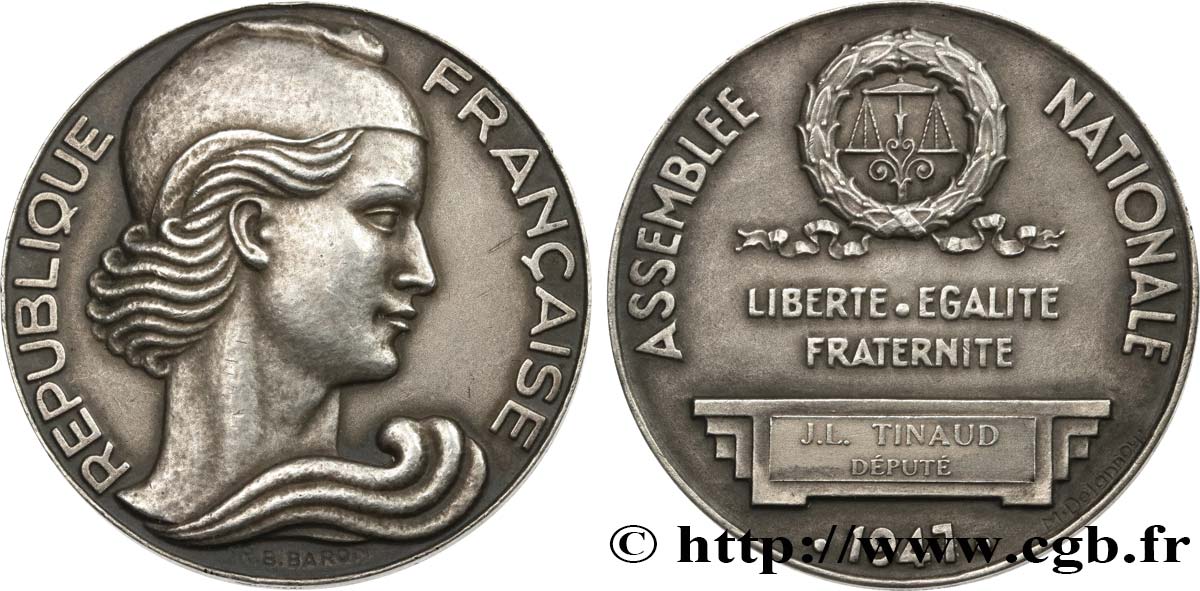fme_633307 - IV REPUBLIC Médaille parlementaire, Assemblée Nationale, Jean-Louis Tinaud
420.00 €(Approx. 457.80$ | 352.80£)
Quantity
Add to your cart

Type : Médaille parlementaire, Assemblée Nationale, Jean-Louis Tinaud
Date: 1947
Metal : silver
Millesimal fineness : 950 ‰
Diameter : 50 mm
Orientation dies : 12 h.
Engraver BARON Roger Bertrand (1907-1994)
Weight : 61,70 g.
Edge : lisse + corne d’abondance 1ARGENT
Puncheon : corne 1ARGENT
Rarity : R3
Coments on the condition:
Cette médaille présente de hauts reliefs. Exemplaire recouvert d’une patine grise de médaillier. Présence de quelques coups et rayures
Obverse
Obverse legend : REPUBLIQUE - FRANÇAISE.
Obverse description : Tête de la République à droite portant un bonnet, une vague sous le cou ; au-dessous R. B. BARON.
Reverse
Reverse legend : ASSEMBLEE - NATIONALE.
Reverse description : Guirlande de laurier contenant une balance, nouée à sa base par un ruban ; au-dessous la devise LIBERTE. EGALITE / FRATERNITE au-dessous d’un cartouche ; .1947. sous le cartouche, à droite M. Delannoy. Sur le cartouche en deux lignes et en relief J.L. TINAUD / DÉPUTÉ.
Commentary
Médaille attribuée en 1947 à Jean-Louis Tinaud. Jean-Louis Tinaud est bien connu en tant que député sous la quatrième République puis par les différentes fonctions politiques importantes qu’il exerça. Résistant, il figure parmi les députés qui déclarèrent le non-lieu dans l’affaire Bousquet. Il naquit le 23 juillet à Porto Rico et décéda à Saint-Coud le 14 août 1990 (Hauts-de-Seine). Il était avocat à la Cour d’appel de Paris. Il fut député des Basses-Pyrénées de 1945 à 1951, puis sénateur de ce département de 1951 à 1969 et , président du Conseil général de 1960-1964. De 1963 à 1968 il fut représentant de la France aux Nations-Unies. Il fut secrétaire d’état auprès du ministre d’État chargé des relations avec le Parlement sous le gouvernement de Jacques Chaban-Delmas (20 juin 1969-5 juillet 1972) sous la présidence de Georges Pompidou.








 Report a mistake
Report a mistake Print the page
Print the page Share my selection
Share my selection Ask a question
Ask a question Consign / sell
Consign / sell
 Full data
Full data









